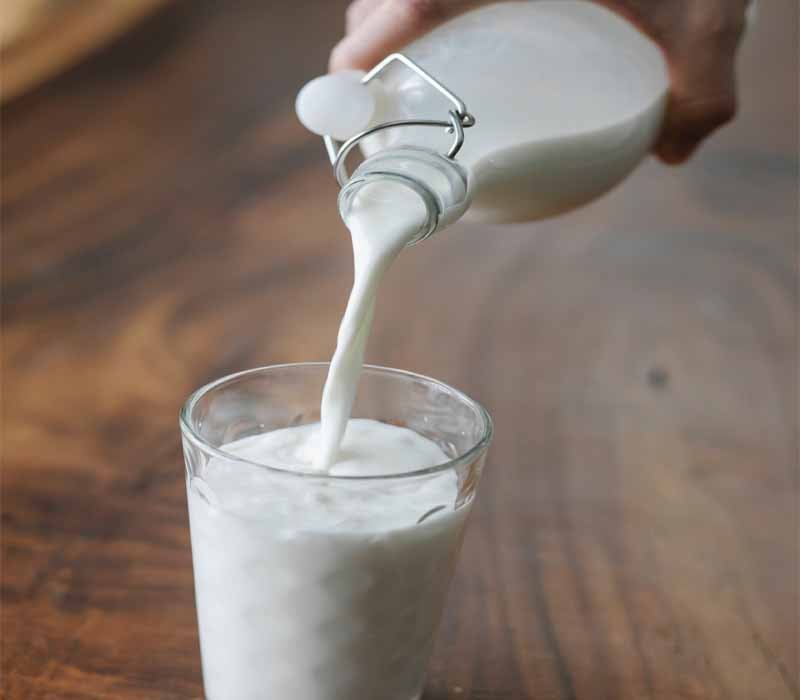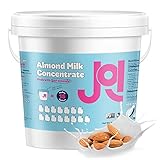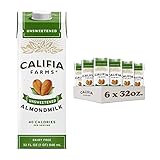Is almond milk the perfect addition to your keto-friendly diet? Find out now. Discover the truth and the keto diet with our in-depth guide.
Page Contents
What is The Keto diet?
The Keto diet is a high-fat, low-carbohydrate diet that tries to induce ketosis in the body, in which the body burns fat for energy rather than carbs. The traditional Keto diet consists of taking 70-80% of calories as fat, 20-25% as protein, and only 5-10% as carbs.
This macronutrient ratio is intended to push the body to break down fat into molecules known as ketones. Which may be used as an alternate fuel source when glucose is in short supply. The Keto diet has been used to treat epilepsy for decades, and it has lately acquired appeal as a weight reduction and general health improvement diet.
Is Almond Milk Keto?
Since almond milk contains little carbs and sugar, it may be a suitable ketogenic alternative. Unsweetened almond milk is a good option for individuals following a ketogenic diet, which normally calls for restricting daily carbohydrate consumption to anywhere between 20 and 50 grams. One cup of unsweetened almond milk with no sugar typically includes approximately 1-2 grams of carbs.
It’s crucial to remember that certain kinds of almond milk could have thickeners or additional sugars, which might raise the number of carbohydrates in the product. When selecting almond milk for a ketogenic diet, it’s crucial to thoroughly review the nutritional information label and ingredient list.
Almonds, which have a substantial amount of calories and fat content, may also need to be limited for certain persons following a ketogenic diet.
How Much Almond Milk Can You Have on Keto?
Your own macronutrient objectives and daily calorie intake will determine how much almond milk you can consume when following a ketogenic diet. In general, one cup (240 ml) of unsweetened almond milk has 2.5-3 grams of fat and about 1-2 grams of carbs.
It’s usually better to restrict your consumption of almond milk to a little quantity each day, such as 1/4 to 1/2 cup (60-120 ml) every serving, to keep under the required daily intake of 20-50 grams of carbs on a ketogenic diet.
To prevent exceeding your daily carbohydrate and calorie restrictions, it’s critical to modify the amount when using almond milk in recipes that call for cow’s milk.
Nutritional Value of Almond Milk
The macronutrient profile of almond milk varies based on brand and whether it is sweetened or unsweetened. Based on unsweetened almond milk, below is a basic breakdown:
- Fat: 2-3 grams per cup
- Protein: 1 gram per cup
- Carbohydrates: 1-2 grams per cup
- Fiber: 0-1 gram per cup
It’s worth noting that the macronutrient breakdown of almond milk might vary depending on whether it’s fortified with extra minerals like calcium or vitamin D. Also, flavored or sweetened almond milk may include more carbs and calories. When it comes to almond milk for the Keto diet, consider unsweetened kinds that fall inside your daily carbohydrate restriction.

Comparing The Carb Content of Almond Milk to Other Milk Alternatives
Unsweetened almond milk has fewer carbs than other milk substitutes. Here’s a breakdown of the carbohydrate amount per cup of several popular milk substitutes:
- Unsweetened almond milk: 1-2 grams of carbohydrates per cup
- Unsweetened coconut milk: 1-2 grams of carbohydrates per cup
- Unsweetened soy milk: 3-4 grams of carbohydrates per cup
- Unsweetened oat milk: 12-16 grams of carbohydrates per cup
It’s vital to remember that the carbohydrate content of milk substitutes varies depending on the brand and whether they’re flavored or sweetened. Also, some milk substitutes may contain thickeners or other additives that modify their nutritional profile.
Generally, unsweetened almond milk is a suitable choice for individuals on a low-carbohydrate diet, such as Keto, because it has fewer carbs than other milk substitutes, such as oat milk. Nonetheless, it’s always a good idea to read the label and select a milk substitute that meets your specific dietary needs and tastes.
How Does Almond Milk Fit Into a Well-Formulated Keto Diet Plan?
It’s vital to remember that the carbohydrate content of milk substitutes varies depending on the brand and whether they’re flavored or sweetened. Also, some milk substitutes may contain thickeners or other additives that modify their nutritional profile.
Generally, unsweetened almond milk is a suitable choice for individuals on a low-carbohydrate diet, such as Keto. Because it has fewer carbs than other milk substitutes, such as oat milk. Nonetheless, it’s always a good idea to read the label and select a milk substitute that meets your specific dietary needs and tastes.
Is Almond Milk Keto-Friendly Has Potential Benefit?
On a Keto diet, there are various possible benefits of drinking almond milk, including:
- Low in carbs: As previously stated, almond milk is low in carbohydrates. Making it an excellent substitute for conventional cow’s milk for people on a Keto diet
- Almond milk has a lot of healthy fats, which are a crucial macronutrient in the Keto diet. These unsaturated fats can help you feel satiated for extended periods and promote a healthy metabolism
- Low in calories: Almond milk is also low in calories, making it an excellent choice for people attempting to lose weight or keep their weight under control on the Keto diet
- Almond milk is naturally devoid of lactose and casein.
- Several kinds of almond milk are fortified with calcium, vitamin D, and other elements. Making it a wonderful source of these critical vitamins and minerals for individuals who don’t get enough from their diet
Overall, almond milk may be a healthy and handy supplement to a well-planned Keto diet. As with any dietary adjustment, consult with a healthcare practitioner or registered dietitian to identify the best strategy for your specific requirements and health objectives.
Is it Important to Use Keto-Friendly Almond Milk?
Indeed, if you’re on a Keto diet, you should drink Keto-friendly almond milk. While almond milk is an excellent option for the Keto diet, not all almond milk products are the same. Certain almond milk products may have added sugars or other high-carbohydrate additives. Making it inappropriate for a low-carbohydrate diet such as Keto.
When selecting almond milk for the Keto diet, look for unsweetened types that are low in carbs. And free of other high-carbohydrate additives such as thickeners or sweeteners. Some manufacturers may pitch their almond milk as “Keto-friendly” or “low-carb”. So read the label carefully for the macronutrient breakdown and any additional additives.
Overall, choosing a Keto-friendly almond milk can help you stay within your daily carbohydrate limit while still enjoying the benefits of almond milk as a low-carbohydrate alternative to cow’s milk.

Conclusion
Finally, it is low in carbs, high in healthy fats, and free of lactose and casein. Almond milk can be a Keto-friendly alternative to cow’s milk. It is vital, however, to select unsweetened almond milk that is low in carbs. And free of any high-carbohydrate additives such as thickeners or sweets.
This will keep you within your daily carbohydrate limit while still enjoying the advantages of almond milk as a low-carbohydrate substitute for cow’s milk. As with any dietary adjustment, speaking with a healthcare expert or registered dietitian to identify the best strategy for your specific requirements and health objectives is always a smart option.
We have more related articles,
- Keto Chicken Breast Recipe – A Healthy Diet
- Do you Know How to Make Keto Strawberry Smoothie?
- Is Almond Butter Keto & How to Make It?
- 1 Cup Almond Milk Calories: The Best Information For You
- Keto Croutons | Amazing Treat During Your Strict Diet
FAQs
You can easily incorporate one to two cups of unsweetened almond milk into your ketogenic diet plan. This quantity is low enough in net carbs (3 g) without much concern.
Unsweetened almond milk, coconut milk, macadamia nut milk, flax milk, soy milk, cashew milk, and pea milk — along with half-and-half and heavy cream — are all keto-friendly milk options.
Almonds can be enjoyed raw or roasted as a keto-friendly snack. You can also buy or make keto-friendly almond milk or butter. In addition, almond flour is a widely used flour alternative.











